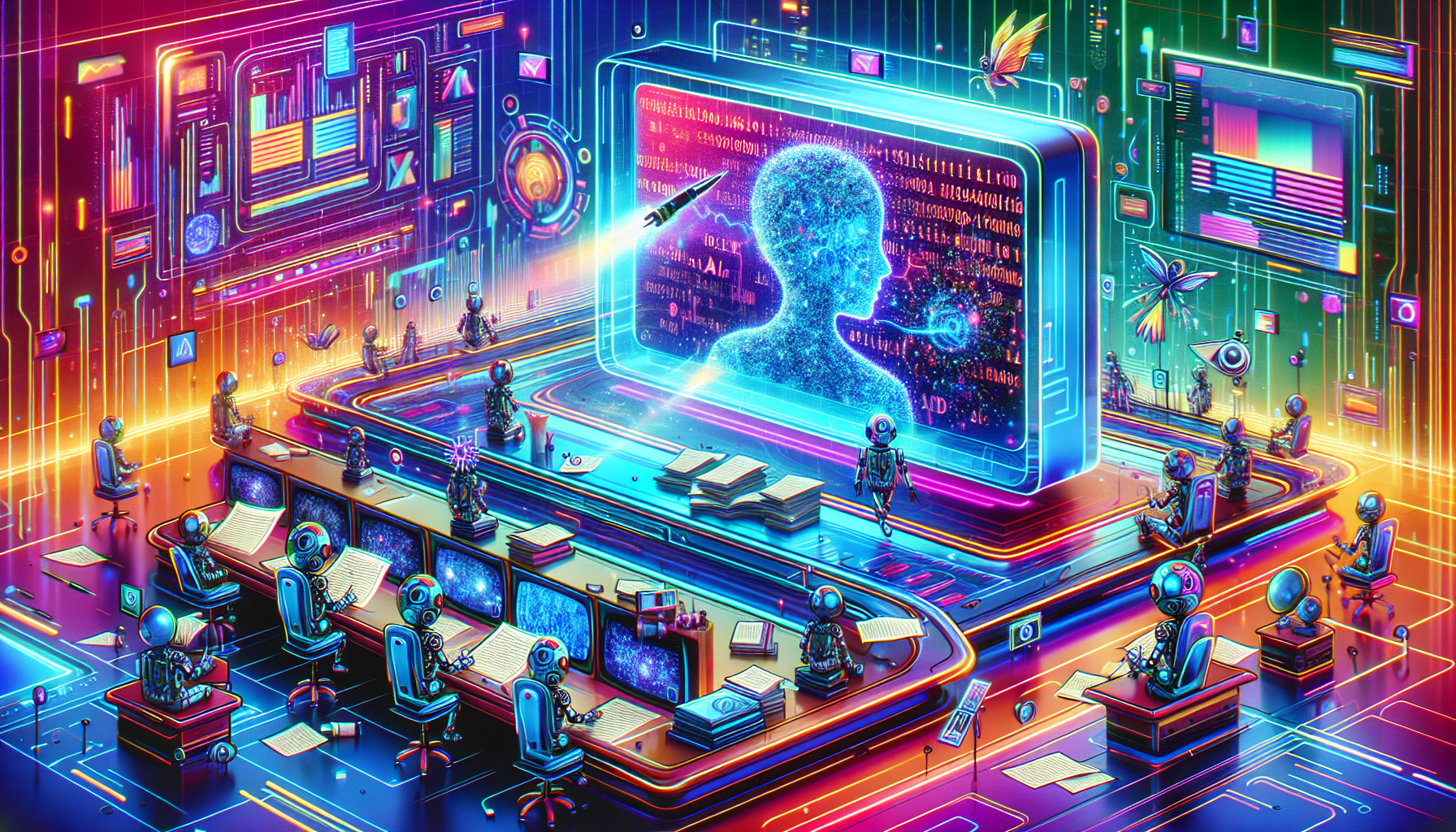
The Dawn of AI in the World of Screenwriting
The landscape of television and movies is undergoing a significant transformation, thanks to the advent of Artificial Intelligence (AI) in screenwriting. This groundbreaking shift is not just altering how scripts are written but is revolutionizing the entire creative process, bringing about a new era in storytelling. The introduction of AI in the realm of screenwriting is poised to change the industry in ways previously unimaginable, promising to deliver content that transcends traditional boundaries of creativity and efficiency.
How AI Screenwriting Works
AI screenwriting involves the use of advanced algorithms and machine learning techniques to generate narratives, dialogues, and even complete scripts. These AI systems are trained on vast databases of existing films, scripts, and books, enabling them to understand story structures, character development, and genre specifics. By analyzing this data, AI can produce original content or suggest changes to existing scripts, enhancing their appeal or coherence. Some platforms also allow for the customization of output by setting specific parameters, such as genre, tone, or plot points, giving creators a powerful tool to assist in the creative process.
The Impact of AI on Screenwriting
Enhanced Creativity and Experimentation
One of the most significant impacts of AI in screenwriting is the potential for enhanced creativity and experimentation. AI can generate countless ideas, themes, and dialogue options, providing writers with a broader palette from which to draw inspiration. This can lead to more innovative storytelling and the exploration of genres or narratives that may have been considered too risky or complex to tackle manually.
Increased Efficiency and Productivity
In addition to boosting creativity, AI screenwriting tools also offer the promise of increased efficiency and productivity. By automating certain aspects of the writing process, these tools can save writers considerable time, allowing them to focus on refining story elements or working on multiple projects simultaneously. For studios and production companies, this could mean faster turnaround times for scripts and the ability to produce more content within shorter timeframes.
The Challenge of Authenticity and Emotional Depth
Despite the advantages, the incorporation of AI in screenwriting is not without its challenges. Critics argue that scripts produced by AI may lack the authenticity and emotional depth that come from human experience. There is a fear that reliance on AI could lead to homogenized content, where scripts feel too formulaic or lack the subtleties that make storytelling compelling. As such, the role of human writers in interpreting, editing, and enhancing AI-generated content remains crucial.
The Future of AI Screenwriting
The integration of AI into screenwriting is still in its early stages, but its potential is undeniable. As technology advances, AI is expected to become an even more sophisticated collaborator in the creative process, possibly leading to entirely new forms of storytelling. The challenge for the industry will be to find the right balance between leveraging AI’s capabilities to enhance creativity and efficiency while preserving the unique, emotional resonance that only human writers can provide.
The rise of AI screenwriting signals a bold step forward for the film and television industry. It offers an exciting glimpse into a future where technology and creativity merge to produce content that is not only more diverse and innovative but also created with unprecedented efficiency. As we move into this new era, the collaboration between human and artificial intelligence will undoubtedly shape the next chapter of storytelling, promising audiences experiences beyond their wildest imaginations.






